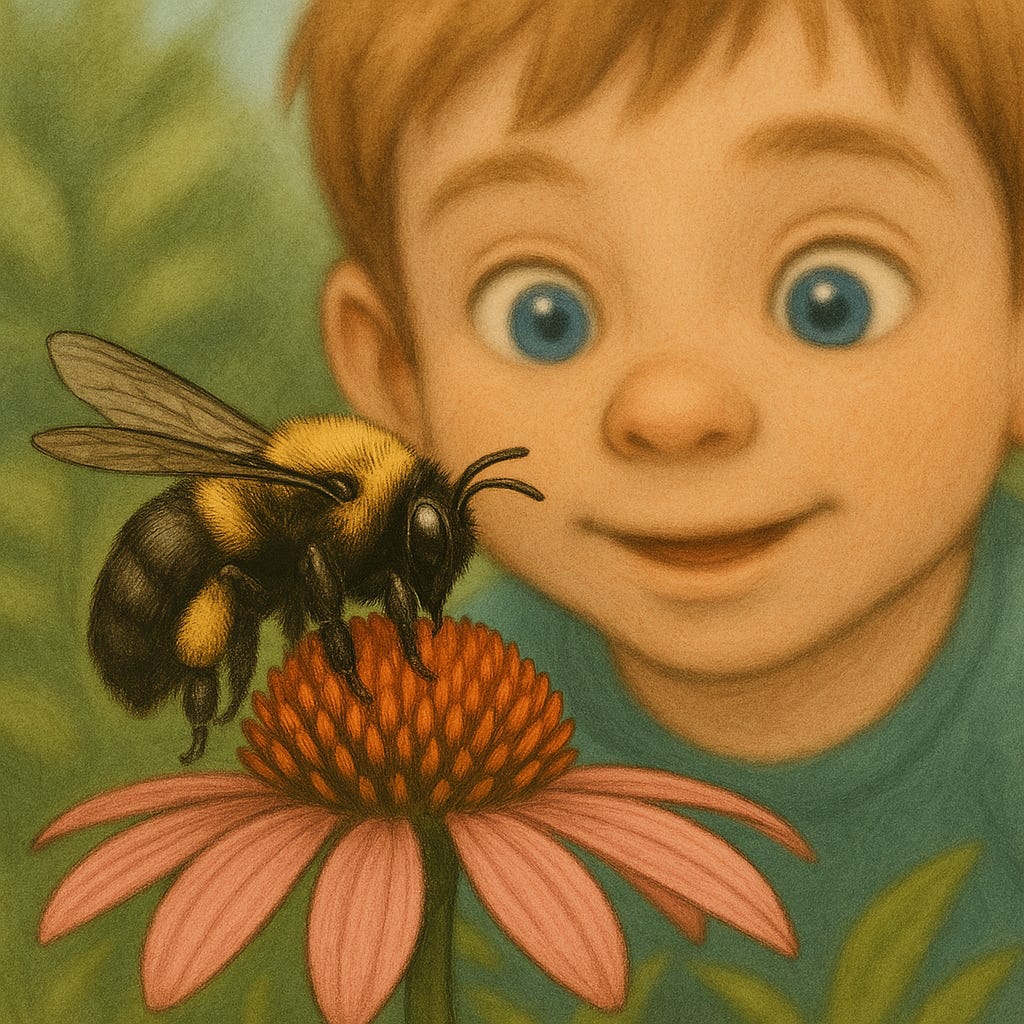Living Despite the World
Refusing to be broken by a broken world
Lately, our mornings have felt too peaceful.
I make my morning coffee. I pour my son some juice in a coffee mug. My wife, daughter, son, and I step outside to breathe in the spring air. It's become part of our morning routine. We dress the kids, prepare them for the day, and then spend a few minutes enjoying our backyard. And it feels… unsettling.
As we sit, insulated in our fenced-in yard, the world around us feels like it’s on fire.
An escalating trade war. Civil liberties are under attack. People are being imprisoned for what they say—or who they are.
Meanwhile, we drink coffee. We listen to the birds. We watch the sun peek over the mountains and observe the carpenter bees floating between the flowers. Then, we move on with our day.
In the current climate, it's easy to wonder if carrying on as though nothing is wrong is an ethical choice. If we let the anxiety set in, it isn't hard to spiral into despair. Can't we do more? As fathers, we want to protect our families and—if we're truly virtuous—our communities. Is it wrong to just live our lives and go through our routines as if we're nothing more than carpenter bees?
Carpenter bees are oblivious to human affairs. Like most wild creatures, they live despite us. They eat, nest, reproduce, and repeat.
In the process, they inconvenience us, burrow into wood, and damage our property. Unlike honeybees, they don't gather nectar to make honey or serve a hive. They do it just to feed themselves. They seem selfish and destructive. But that’s only our perspective—what they take from us, not what they give to the world.
As it happens, carpenter bees are extremely efficient pollinators, more so in many cases than the honeybee. They fill in the gaps when other bee populations decline. Though they appear useless, destructive, and selfish, they play a vital role in the ecosystem. Of course, they are ignorant of their broader impact. They're just doing what's necessary to survive—because that's what living things do.
And that's what we're doing, too. It may not feel like activism, but we serve a broader purpose by caring for ourselves and our children.
The ancient Stoics had a word for this: Sympatheia. It’s the belief that everything in nature is interconnected and that our actions, however small, contribute to the whole. It reminds us to focus on what we can control—and let go of what we can’t.
So, while we should absolutely remain engaged and informed, we can't let our emotions stand in the way of our duties as parents, partners, and people. That's not turning a blind eye. That's acknowledging the world's brokenness while refusing to be broken by it.
So, I'll wake up tomorrow morning, make coffee, pour my son some juice, and breathe in the spring air. The carpenter bees will buzz and tend to what's theirs. And we'll tend to what is ours—because that's what living things do.




Beautiful. Live and let live!